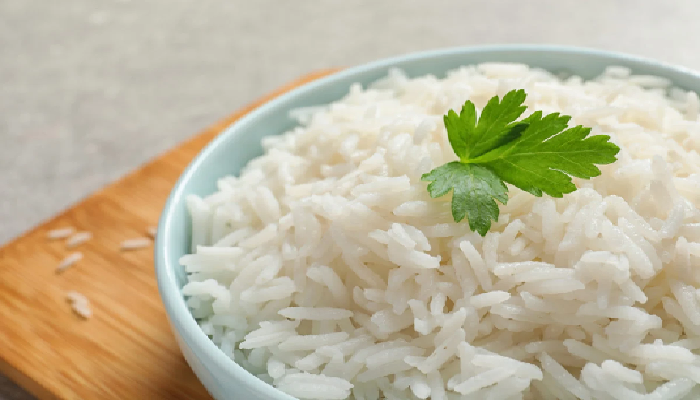Culinary Medicine: The Power of Jasmine Rice
1. Health benefits of jasmine rice is a long grain variety of rice that has become increasingly popular over recent years. Native to Southeast Asia, this fragrant rice is renowned not only for its distinctive sweet aroma but also for a variety of health benefits. Here, we take a look at some of the associated health benefits of jasmine rice.
One of the key benefits of jasmine rice is its high fiber content. Fiber has been linked to numerous health benefits, from improving digestion and regulating blood sugar levels to increasing feelings of fullness. The fiber found in jasmine rice helps to promote optimal digestive health, relieve constipation, and ease the symptoms of irritable bowel syndrome.
Jasmine rice is also a good source of essential vitamins and minerals, including folate, iron, and magnesium. Magnesium plays an important role in maintaining bone health, as well as helping to regulate blood sugar levels. Folate is vital for cell renewal and also helps to prevent certain birth defects. Iron is also important for healthy cell renewal and helps to prevent anemia.
Jasmine rice is also a low glycemic food, which means that it is slowly digested and absorbed, helping to prevent spikes in blood sugar levels. Low glycemic foods can also help to reduce cravings and regulate hunger hormones, making it a great choice for helping to achieve and maintain a healthy weight.
In addition to its health benefits, jasmine rice is also incredibly versatile, making it an ideal choice for any diet. It can be cooked in a variety of ways, from steaming and boiling to stir-frying and roasting, and pairs well with both sweet and savoury dishes.
So, if you’re looking for a healthy, versatile option for your next meal, jasmine rice may be the perfect choice for you. With its delicious aroma and numerous health benefits, this fragrant rice is sure to become a regular staple in your household.
Jumpstart To Health: Switch To Jasmine Rice
2. Jasmine rice is a popular long grain variety of rice that has been consumed for centuries in Southeast Asia. It has a sweet, nutty flavor and can be easily incorporated into many types of dishes. Jasmine rice is becoming increasingly popular as people discover its unique flavor and its potential health benefits.
Jasmine rice is high in fiber, low in fat, and contains a variety of essential vitamins and minerals. It is also a source of resistant starch, which is a type of dietary fiber that has been linked to health benefits such as improved digestion. Additionally, some studies have suggested that resistant starches may help decrease inflammation of the gut and reduce the risk of certain chronic diseases.
Jasmine rice is rich in healthy plant compounds called phytonutrients. These compounds can help support healthy blood sugar levels, protect against disease-causing inflammation, as well as help delay the aging process. Some research has even suggested that jasmine rice may aid in weight-loss, although more research is needed to confirm this.
In terms of nutrition, jasmine rice is a good source of iron, calcium, potassium, magnesium, and vitamins B1, B3, and B6. All of these nutrients are important for maintaining good health, such as promoting healthy skin and bones, boosting the immune system, and providing energy.
Overall, jasmine rice offers a range of health benefits and can be easily incorporated into many dishes. It adds a unique flavor and its nutrient content makes it an excellent choice for people looking to improve their overall health.
Gorgeous Grains: 6 Health Benefits of Jasmine Rice
3. Jasmine rice is popular among rice eaters in many parts of the world. It’s considered to have a unique, pleasant scent and a fluffy texture, making it a popular choice for many dishes. But jasmine rice is more than just another grain; it’s packed with health benefits, too. Here are some of the key health benefits of jasmine rice.
Rich in Vitamins and Minerals: Jasmine rice is an excellent source of essential vitamins and minerals, such as thiamin, riboflavin, niacin, and iron. Of these nutrients, thiamin and iron are particularly important for human health since they are needed for metabolism, growth, and energy production.
High in Fiber: Dietary fiber is essential for healthy digestion, as it helps to push matter through the digestive system. One cup of cooked jasmine rice contains 2.6 grams of dietary fiber, which is enough to meet the recommended dietary allowance for an individual.
High in Plant-Based Protein: Jasmine rice is a great source of plant-based proteins, providing around 4.5 grams of protein for every cup of cooked rice. This is a great option for vegetarians and vegans who need to meet their daily protein requirements.
Low Glycemic Index: Jasmine rice is considered to have a low Glycemic Index (GI), meaning it won’t cause sudden spikes in blood sugar levels. This is important for those with diabetes, as they need to watch their blood sugar levels.
Gluten-Free: Since jasmine rice is a grain and not derived from wheat, it is gluten-free. This makes it safe for those with Celiac disease or gluten sensitivities, as they can still enjoy this delicious grain without worrying about the consequences.
Jasmine rice is an excellent choice for those looking to take advantage of its health benefits. This fragrant grain offers essential vitamins and minerals, high fiber content, plant-based proteins, low GI values, and a naturally gluten-free status. This makes it a great choice for anyone looking to get the most out of their meals.
Jasmine Rice: An Energetic Luxury For Health And Wellness
4. Jasmine rice is a popular variety of fragrant long grain rice. It is a high quality rice that is distinct in both flavor and texture. Native to Thailand, it is also known as ‘fragrant rice’ or ‘aromatic rice’ due to its fragrance emitted when cooked. This type of rice is renowned for its rich flavor, light texture and attractive appearance. Beyond just its taste and visuals, jasmine rice also comes with a myriad of health benefits.
One of the primary health benefits of jasmine rice is its rich supply of essential vitamins and minerals. It is a good source of some important nutrients, including vitamin B-6, thiamine, folate, iron, and magnesium. In addition, jasmine rice is also known to contain higher levels of amylose-resistant starch, a type of dietary fiber. Thus, eating jasmine rice may help to improve digestive health and reduce the risk of chronic conditions, such as diabetes, cancer and heart disease.
Another benefit of jasmine rice is its composition of complex carbohydrates. Unlike simple carbohydrates, complex carbohydrates are digested slowly, which is beneficial for maintaining blood sugar levels. Eating jasmine rice can provide a steady supply of energy over a prolonged period of time. This makes it an ideal option for those seeking an efficient energy boost.
Finally, jasmine rice is also known for its low-calorie content, making it an ideal food for weight-loss and maintaining a healthy lifestyle. Its nutritional value combined with a low calorie content makes it a good choice for those wishing to control their calorie intake without compromising on the nutritional intake.
In conclusion, jasmine rice is a fragrant variety of rice that is renowned for its distinct flavor, texture and appearance. It is also overflowing with nutritional benefits, and is low in calories – making it an ideal choice for those looking to improve their health and regulate their weight.
Finely Formulated: Jasmine Rice For Natural Nourishment
5. Jasmine rice has recently become one of the most popular types of rice consumed around the globe due to its unique flavor and aroma. The soft, sticky texture of jasmine rice makes it a great accompaniment to a variety of dishes, but its health benefits are just as impressive. Here are some of the health benefits of jasmine rice.
Good Source of Nutrition: Jasmine rice is a good source of nutrition and is lower in calories than other types of rice. It is also rich in vitamins and minerals, including iron, calcium, phosphorus, magnesium and zinc. Moreover, it is high in dietary fiber and thiamine, which are important for maintaining proper heart and digestive health.
Rich in Antioxidants: An added benefit of jasmine rice is that it is high in antioxidants, which help protect the body from the damaging effects of free radicals. These antioxidants are beneficial for reducing the risk of various diseases such as cancer and heart disease.
High in Natural Glutamic Acid: It also contains natural glutamic acid, which helps in enhancing the flavor and aroma of dishes. This can make dishes more enjoyable to eat, as well as helping to reduce the overall fat content.
Contains Low Glycemic Content: Jasmine rice also has a low glycemic content, meaning that it is released slowly into the bloodstream when digested, thus reducing spikes in blood sugar levels. This makes it an excellent choice for individuals with diabetes, as well as for those who are looking to shed some extra pounds.
Overall, jasmine rice is a highly nutritious and healthy addition to any diet. It is versatile enough to be used for a wide range of dishes and its multitude of health benefits are sure to make it an even more popular choice in the future.





